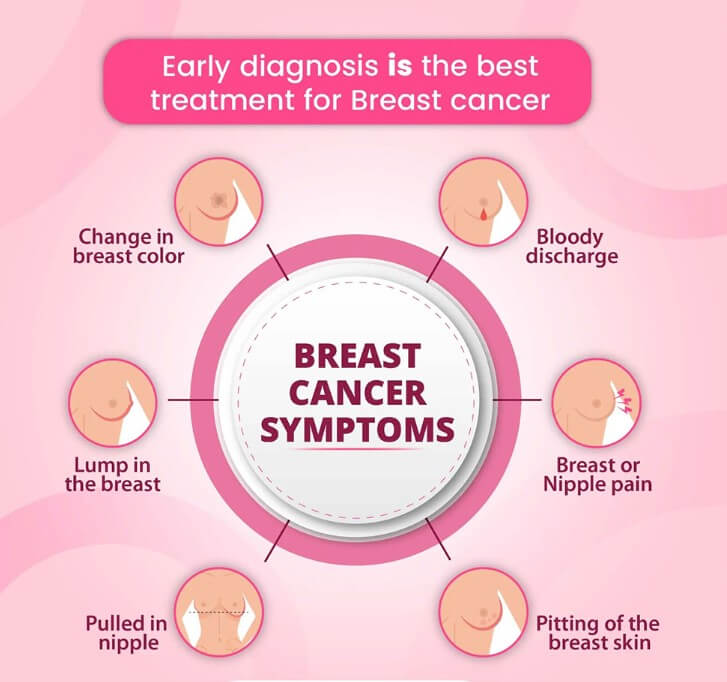Breast cancer is a reality that touches countless lives, whether through personal diagnosis or the experience of a loved one. In the United States, 1 in 8 women will develop breast cancer in her lifetime. While certain risk factors like age, genetics, and family history are beyond our control, research shows that lifestyle choices play a significant role in reducing breast cancer risk. Organizations like the American Cancer Society emphasize that daily habits—such as diet, exercise, and stress management—can have a profound impact on prevention and even support treatment for those already diagnosed.
The good news? You have more power than you might think to influence your health. By making mindful lifestyle changes, you can take proactive steps to lower your risk and improve your overall well-being. Let’s explore how.
Understanding Breast Cancer Risk: What You Can Control
While some risk factors are unavoidable, about 70% of women diagnosed with breast cancer have no identifiable risk factors beyond gender and age. This has led researchers to focus on the role of lifestyle and environmental factors in cancer development. The evidence is clear: small, consistent changes in your daily habits can make a big difference in reducing your risk.
How a Healthy Lifestyle Can Reduce Breast Cancer Risk
Though there’s no single cause of breast cancer, research shows that lifestyle choices significantly influence your risk. Here are five key areas where you can take action:
1. Diet and Nutrition
A healthy diet is one of the most powerful tools for reducing breast cancer risk. Plant-based foods like fruits, vegetables, whole grains, nuts, and seeds are rich in phytonutrients and fiber, which help reduce inflammation, support the immune system, and promote hormone balance. On the other hand, processed foods, refined sugars, and unhealthy fats can increase inflammation and fuel cancer cell growth.
Take Action:
- Fill your plate with colorful, whole foods.
- Swap sugary snacks for fresh fruit or nuts.
- Choose water or herbal tea over sugary drinks.
- Remember, progress over perfection—small changes add up!
2. Physical Activity
Regular exercise is a game-changer for breast cancer prevention. Studies show that women who engage in moderate to vigorous physical activity have a lower risk of developing breast cancer. Exercise helps maintain a healthy weight, reduces inflammation, and balances hormones—all of which contribute to lowering cancer risk.
Take Action:
- Aim for at least 150 minutes of moderate exercise per week.
- Break it into smaller chunks if needed—even a 10-minute walk counts.
- Find activities you enjoy, like dancing, swimming, or yoga.
3. Weight Management
Maintaining a healthy weight is crucial for reducing breast cancer risk. Excess body fat, especially around the waist, can increase estrogen and insulin levels, which may promote cancer growth.
Take Action:
- Focus on portion control and nutrient-dense foods.
- Incorporate more vegetables, lean proteins, and whole grains into your meals.
- Celebrate small wins—sustainable changes lead to lasting results.
4. Alcohol Consumption
Even moderate alcohol consumption has been linked to an increased risk of breast cancer. Studies show that as few as three drinks per week can raise your risk by 15%.
Take Action:
- Limit alcohol intake or opt for non-alcoholic alternatives.
- Save alcohol for special occasions rather than daily consumption.
- Every reduction counts—your body will thank you.
5. Stress Management
Chronic stress can weaken the immune system and increase inflammation, which may contribute to cancer development. While stress alone doesn’t cause cancer, managing it effectively is essential for overall health.
Take Action:
- Practice daily stress-relief techniques like deep breathing, meditation, or journaling.
- Spend time in nature—even a short walk can work wonders.
- Prioritize self-care and carve out moments of stillness in your day.
The Importance of Regular Screening
While lifestyle changes are powerful, they should complement—not replace—regular breast cancer screenings. Mammograms, self-exams, and annual check-ups are critical for early detection, which significantly improves treatment outcomes.

Take Action:
- If you’re over 40, talk to your healthcare provider about scheduling regular mammograms.
- Perform monthly breast self-exams to stay familiar with your body.
- Early detection saves lives—don’t skip your screenings.
Take Control of Your Health Today
Breast cancer is a complex disease, but you have the power to influence your risk through lifestyle choices. By adopting healthier habits—like eating a plant-based diet, staying active, managing stress, and limiting alcohol—you can take meaningful steps toward prevention.
If you’re ready to dive deeper into the science of lifestyle medicine and learn how to implement these changes in your life, I invite you to join our Lifestyle Medicine Course. This comprehensive program will equip you with the tools and knowledge to take control of your health, reduce your risk of chronic diseases, and live your best life.
Enroll today and start your journey toward a healthier, more vibrant future!
Remember, small changes can lead to big results. Start today—your health is worth it.
